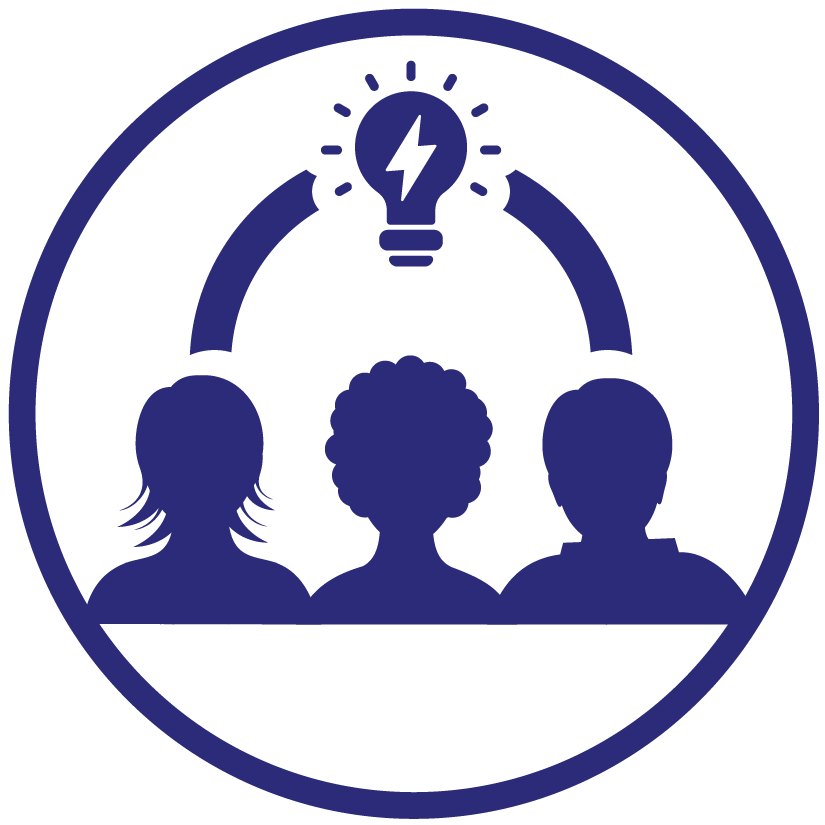ACCESS TO OPPORTUNITY
RECOMMENDATION 1:
Conduct and help grantee partners be equally accountable for smart, microtargeted outreach about government-funded technical and financial assistance that resonates with women innovators unfamiliar with that programming. To further leverage their communications planning efforts, federal agencies could build grantee toolkits that help resource partners market inclusively to women innovators by identifying priority constituents, messages, and channels. Agencies will need congressional authorization and dedicated funding for intelligent outreach.
RECOMMENDATION 2:
Lead an effort to identify secure information-sharing protocols, record and category standards, and cybersecurity requirements to enable expanded reciprocity and data exchange between business certifying bodies. If data-managing agencies explored methods for sharing information with trusted entities, including confidential application components with an applicant’s permission, they could help lay the groundwork that increases the value of all certifications.
RECOMMENDATION 3:
Adopt common contract bid/grant application elements and have more live contact with agency representatives to expand the opportunities for WOSBs in federal programs.
ACCESS TO CAPITAL
RECOMMENDATION 1:
Study and develop criteria for piloting expanded forgiveness of SBA-backed loans, building on the success of pandemic programs in transferring capital to entrepreneurs who have driven a small business startup boom.
RECOMMENDATION 2:
Develop and promote the use of criteria, tools, and best practices in finance decision-making that make it harder than not to act equitably. These could include digital tools that flag suspected proposed decisions for further review, training to positively weigh factors like lived experience and technical knowledge, and more.
RECOMMENDATION 3:
Amplify the impact of successful regulatory efforts to expand access to capital by studying and reporting on additional innovations to manage lending risks. Such amplifications include philanthropic partnerships that invest private alongside public dollars in making loan guarantees and allowances for regulated lenders to recognize financial knowledge and similar intangible traits as assets that mitigate assessed risk.
INCLUSIVE ENTREPRENEURIAL ECOSYSTEMS

RECOMMENDATION 1:
Creatively allocate additional public support and construct foundational structures for widely accessible, affordable childcare. Analysis shows access to safe, affordable childcare is an economic imperative, and the incremental steps recommended acknowledge that importance and set the table for transformational change.
RECOMMENDATION 2:
Support SBA grantee resource partners by regularly analyzing and promoting their accomplishments and considering whether reporting can be streamlined or automated. SBA could request Census Bureau data collection about business owners’ interactions with its resource partners and funding for a full-time employee in the Office of Women’s Business Ownership to manage both evaluation of WBCs’ strengths and ongoing technical assistance to these partners.
RECOMMENDATION 3:
Make entrepreneurial education a standard part of elementary, secondary, and college-level instruction and workforce training programs. The Department of Education and other federal agencies could adopt and promote core curricular requirements. SBA could adapt its business training materials to various educational levels and train general education teachers to encourage and cultivate entrepreneurial skills. It could also recommend its training resources to owners and managers of certified WOSBs.
RECOMMENDATION 4:
Form an interagency working group to explore standardizing data collection about WOSBs using methods that capture community and social gains from women’s entrepreneurship. The White House, via OMB, could lead the working group. Economic development data collection could include indicators that improve understanding of techniques that build trust between underrepresented constituents and the government.
